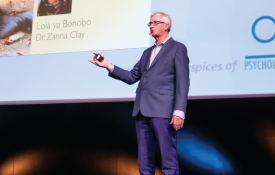
Longevity is not the only reason why we should find Jonathan the tortoise to be of special interest. He’s confirming what Pavlov said about conditioning a century ago: It isn’t just about salivation!

Research suggests that findings about human risk preferences also apply to risk-taking in chimpanzees, our closest evolutionary ancestor in the animal kingdom.
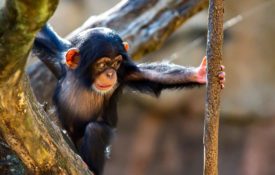
The James McKeen Cattell Fund has recognized APS Fellow Stephanie M. Carlson, C. Daryl Cameron, Robert Hampton, and Kevin Holmes as recipients of its Sabbatical Fund Fellowship for 2023–2024.

Audio cues can not only help us to recognize objects more quickly but can even alter our visual perception. That is, pair birdsong with a bird and we see a bird—but replace that birdsong with a squirrel’s chatter, and we’re not quite so sure what we’re looking at.

Irene Pepperberg pioneered the study of bird cognition back in the 70s and still studies the cognitive and communicative abilities of grey parrots. In this conversation with APS’s Ludmila Nunes, she speaks about research on parrots’ cognitive abilities, their conservation and preservation in the wild, and much more.
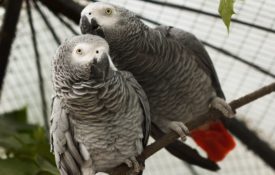
A special issue of Current Directions in Psychological Science explores all that psychological scientists have learned about dog behavior and cognition in recent years.

APS's Charles Blue talks with APS Founding Member Dr. Janet Jones, author of the book Horse Brain, Human Brain.
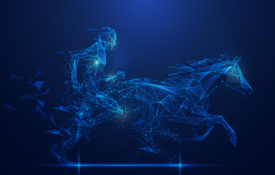
Researchers gauged the reactions of a group of dogs when their owners appeared to shower attention on a perceived rival.

The general claim that living with a pet makes for a happier, healthier or longer life has weak scientific backing, a psychological researcher reports.

Using evaluative conditioning, a team of researchers has developed an unconventional intervention for helping a marriage maintain its spark: pictures of puppies and bunnies.

Pictures of baby animals, including puppies and kittens, can have powerful effects on attention and concentration, a study shows.

Recent research highlights from APS journals, including work on extremism, caregiver mental health, and a typology for unpublished studies.

Head of NIMH discusses the use of animal models in mental health research, and what role animal research will have in the NIMH portfolio.

Accumulating evidence suggests that providing social support for others can benefit caregivers, boosting feelings of social connection.

Studying how infants and toddlers react to scary objects can help reveal the developmental origins of common fears and phobias.
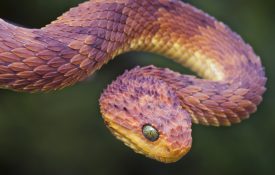
Kenneth Bollen, Jessica Cantlon, Kevin Myers, and Kristin Shutts will extend their sabbatical research in topics ranging from primate cognition to food insecurity.
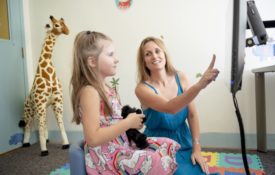
Kai Chi (Sam) Yam (National University of Singapore) tells us about his research on human-nonhuman communication.

Having a lower larynx than humans do doesn't prevent baboons from being able to make human-like vowel sounds.

Evidence has long shown that humans are terrible at multitasking. People are prone to make more mistakes when they’re switching between different tasks, say answering emails and listening to a conference call, than when they
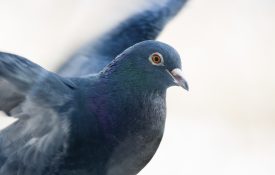
Nearly 600 individuals, including APS Fellows and other psychological scientists, have backed an open letter published in USA TODAY urging public support for animal research.
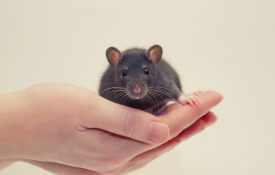
Hyenas and reptiles and seals, oh my! Psychological researchers increasingly are turning to creatures in the wild to better understand the evolution and mechanisms of human cognition and behavior.
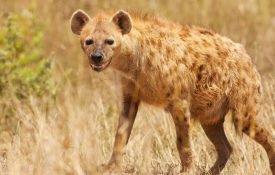
Beliefs about how animals should be treated are likely socially acquired.

Top 10 articles of 2021, according to Altmetrics Attention Scores.

In this episode of Under the Cortex, APS’s Ludmila Nunes and Andy DeSoto discuss five recent articles that examined cognitive control in lemurs, ADHD, how attitudes and biases changed in the last decade, and much more.
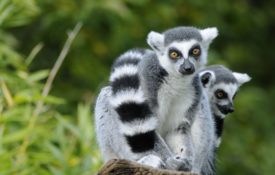
Newly hatched chicks appear to prefer certain sounds over others, just like human infants, suggesting that this musical preference may be innate.
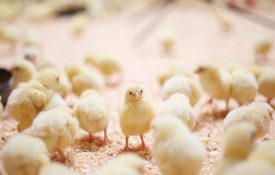
APS Fellow Frans B. M. de Waal says that parallels in animal and human behaviors can deepen our understanding of our own emotions.
